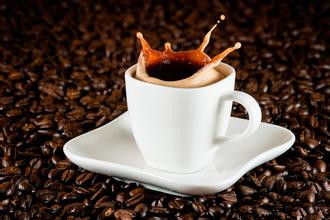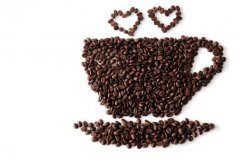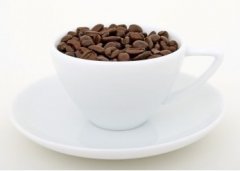World Health Organization (WHO): excessive consumption of coffee and tea in women can lead to iron deficiency anemia
According to Singapore's Lianhe Zaobao, a recent survey by the World Health Organization shows that about 50% of girls, 20% of adult women and 40% of pregnant women develop iron deficiency anemia.

Iron deficiency anemia is a common disease in infants and young children, with an incidence of 20% to 38%. The physiological characteristics of women determine that women are prone to anemia. Adolescent girls grow and develop vigorously, the body has a large demand for iron, coupled with menstruation, it is easy to appear iron deficiency anemia. Pregnant and lactating women to supply fetus and baby nutrients, the need for iron is greatly increased, if there is no additional supplement, anemia is almost inevitable.
Middle-aged women are affected by intrauterine birth control ring, uterine fibroids and so on, the amount of menstruation is more, the loss of iron has become inevitable. The gastrointestinal absorption function of elderly women is decreased, the hematopoietic function is weak, and the occurrence of anemia is also increasing. However, in addition to their own physiological characteristics, women have some misunderstandings and behavior habits in diet, which is also an important cause of iron deficiency anemia.
Iron supplement is the first rule for the treatment of iron deficiency anemia, but there are still many misunderstandings.
Myth 1: eating more meat is bad for your health?
Some women mislead the health damage caused by meat advertised in general advertisements, focusing only on the health benefits of plant foods, resulting in too little intake of animal foods rich in iron. In fact, animal foods are not only rich in iron, but also have a high absorption rate of 25%. The iron element in plant food is disturbed by phytate, oxalate and so on, and the absorption rate is very low, about 3%. Therefore, avoid meat is easy to cause iron deficiency anemia, in the usual diet, the intake of fruits and vegetables and meat should be balanced.
Myth 2: how much do eggs and milk benefit anemic people?
Milk is nutritious, but the iron content is very low, and the absorption rate is only 10%. For example, infants and young children fed with milk often cause iron deficiency anemia if their parents neglect to add supplementary food.
Egg yolk iron supplement is good, although the egg yolk iron content is high, but its iron absorption rate is only 3%, is not a good iron supplement. Some proteins in eggs inhibit the body's absorption of iron. Therefore, although these two kinds of foods that parents often give their children to eat are nutritious, it is not enough to rely on them to supplement iron. However, the animal liver not only contains high iron, but also has an absorption rate of more than 30%, which is suitable for the use of iron supplement. In addition to physiological characteristics, women have some misunderstandings and behavioral habits in diet, which will lead to iron deficiency anemia.
Myth 3: vegetables and fruits are not beneficial to replenish iron?
Many people do not know that eating more vegetables and fruits is also good for iron supplement. This is because vegetables and fruits are rich in vitamin C, citric acid and malic acid, these organic acids can form complexes with iron, thus increasing the solubility of iron in the intestines, which is conducive to iron absorption.
Myth 4: it doesn't hurt to drink more coffee and tea?
For women, excessive drinking of coffee and tea can lead to iron deficiency anemia. This is because tannic acid in tea and polyphenols in coffee can form insoluble salts with iron and inhibit iron absorption. Therefore, women should stop drinking coffee and tea, one or two cups a day.
Of course, in addition to nutritional factors, iron deficiency anemia may also be caused by disease. Such as hemorrhoids, tumors, digestive tract ulcers, long-term use of aspirin and so on. Therefore, if anemia occurs, it is necessary to go to the hospital in time for a clear diagnosis and correct treatment.
Myth 5: if anemia gets better, you should stop taking iron?
It is also a mistake for people with anemia to stop taking iron according to the doctor's instructions and stop taking it when they see that the anemia is improved or stabilized. This can lead to the recurrence of anaemia. The correct way is to take iron to treat iron deficiency anemia, until the anemia is stable, and then continue to take iron for 6 to 8 weeks to supplement the stored iron in the body.
Important Notice :
前街咖啡 FrontStreet Coffee has moved to new addredd:
FrontStreet Coffee Address: 315,Donghua East Road,GuangZhou
Tel:020 38364473
- Prev

Body Pain After Exercise? Coffee
Drinking coffee can help many people relieve physical pain caused by excessive exercise, according to a study that found moderate caffeine consumption was equivalent to drinking two cups of coffee, which reduced muscle soreness by 48 percent. However, researchers at the University of Georgia caution that the findings may not hold true for people who regularly consume caffeine because
- Next

Coffee basic knowledge soft drink with caffeine is addictive
According to reports, the latest scientific research has found that some soft drink manufacturers are adding caffeine to their products, which will increase the likelihood that children will become mildly addicted to caffeine. Professor Russell Exter of Deakin University in Victoria, Australia, and his team found that tasters could not tell whether the drink contained caffeine in any way. Beverage production
Related
- Beginners will see the "Coffee pull flower" guide!
- What is the difference between ice blog purified milk and ordinary milk coffee?
- Why is the Philippines the largest producer of crops in Liberia?
- For coffee extraction, should the fine powder be retained?
- How does extracted espresso fill pressed powder? How much strength does it take to press the powder?
- How to make jasmine cold extract coffee? Is the jasmine + latte good?
- Will this little toy really make the coffee taste better? How does Lily Drip affect coffee extraction?
- Will the action of slapping the filter cup also affect coffee extraction?
- What's the difference between powder-to-water ratio and powder-to-liquid ratio?
- What is the Ethiopian local species? What does it have to do with Heirloom native species?

